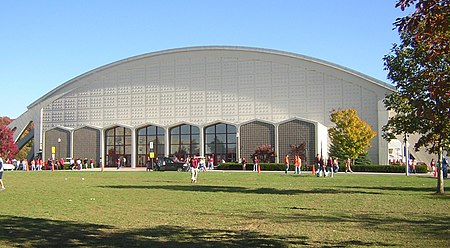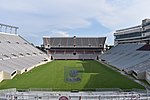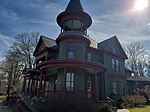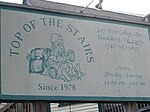The Virginia Tech shooting was a spree shooting that occurred on Monday, April 16, 2007, comprising two attacks on the campus of the Virginia Polytechnic Institute and State University in Blacksburg, Virginia, United States. Seung-Hui Cho, an undergraduate student at the university, killed 32 people and wounded 17 others with two semi-automatic pistols. Six others were injured jumping out of windows to escape Cho.
The first shooting occurred at West Ambler Johnston Hall, a dormitory, where two people were killed; the main attack was a school shooting at Norris Hall, a classroom building, where Cho chained the main entrance doors shut and fired into four classrooms and in a stairwell, killing thirty more people. As police stormed Norris Hall, Cho fatally shot himself in the head. It was the deadliest mass shooting in modern U.S. history and remained so for nine years until the Orlando nightclub shooting. It remains the deadliest school shooting in U.S. history and the deadliest mass shooting in Virginia history.
The attacks received international media coverage and provoked widespread criticism of U.S. gun culture. It sparked debate about gun violence, gun laws, gaps in the U.S. system for treating mental health issues, Cho's state of mind, the responsibility of college administrations, privacy laws, journalism ethics, and other issues. News organizations that aired portions of Cho's multimedia manifesto were criticized by victims' families, Virginia law enforcement officials, and the American Psychiatric Association.Cho had previously been diagnosed with selective mutism and severe depression. During much of his middle school and high school years, he received therapy and special education support. After graduating from high school, Cho enrolled at Virginia Tech. Because of federal privacy laws, the university was unaware of Cho's previous diagnoses or the accommodations he had been granted at school. In 2005, Cho was accused of stalking two female students. After an investigation, a Virginia special justice declared Cho mentally ill and ordered him to attend treatment. Because he was not institutionalized, he was allowed to purchase guns. The shooting prompted the state of Virginia to close legal loopholes that had allowed individuals adjudicated as mentally unsound to purchase handguns without detection by the National Instant Criminal Background Check System (NICS). It also led to the passage of the first major federal gun control measure in the U.S. since 1994. The law strengthening the NICS was signed by President George W. Bush on January 5, 2008.Administrators at Virginia Tech were criticized by the Virginia Tech Review Panel, a state-appointed panel tasked with investigating the incident, for failing to take action that might have decreased the number of casualties. The panel's report also reviewed gun laws and pointed out gaps in mental health care as well as privacy laws that left Cho's deteriorating condition untreated when he was a student at Virginia Tech.: 78 : 2










